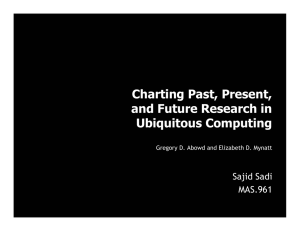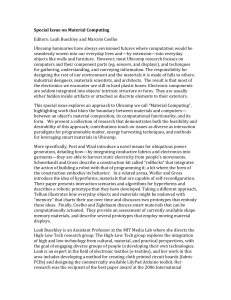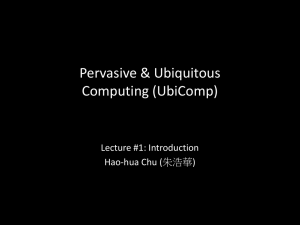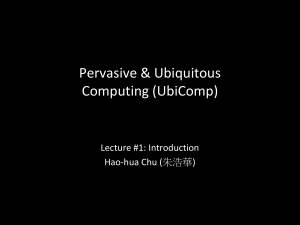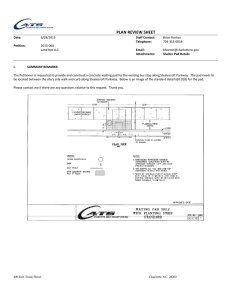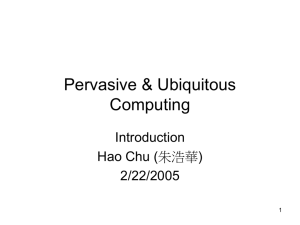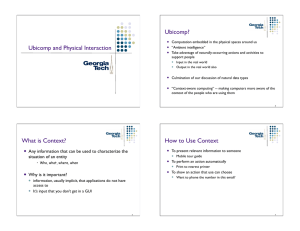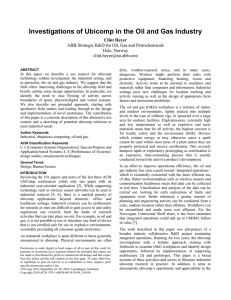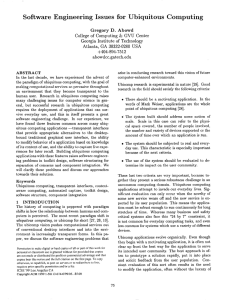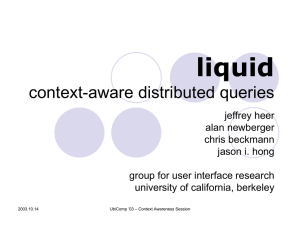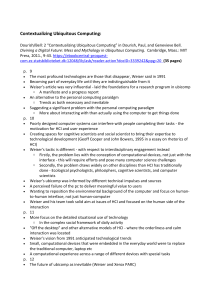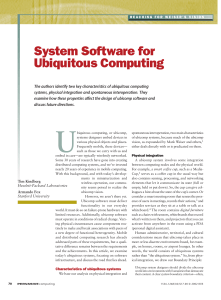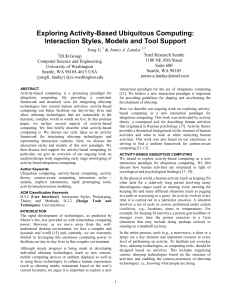Some Computer Science Issues in Ubiquitous Computing Sajid Sadi
advertisement
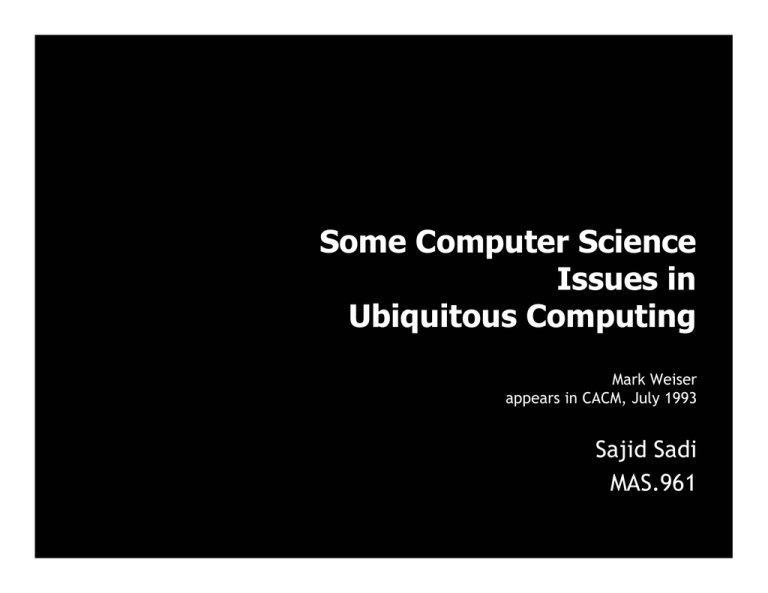
Some Computer Science Issues in Ubiquitous Computing Mark Weiser appears in CACM, July 1993 Sajid Sadi MAS.961 Overview Discusses some of the physical issues concerning ubicomp Hardware aspects of creating devices that disappear, yet occur plentifully in environment Computers and People “…people primarily work in a world of shared situations and unexamined technological skills…” Computers today make things worse Unlike a regular tool, it consumes attention Attempting to have the system act more human simply legitimizes this issue Problem of Paradigm The problem is not in the GUI in itself Attention-centric design is part of affordance Also not a limit of capabilities in data handling or multimedia Problem exists in the relationship around which computers today are designed Inspiration To be a part of the physical world of the user, the object should be like other physical objects in existence Devices should use real-world communication metaphors, instead of attempting to transplant to virtual world Led to the tab/pad/board design, and ended there (effectively) Quantizes the information chunks into sizes that map perhaps to talks or subtasks Hardware ParcTAB PDA-like Low bandwidth and processing, small display Main concern: battery life (~ 1 week) Pad family Essentially unix-enabled tablet PC’s Custom hardware allows approximately same capability as today’s tablets, scaling for improvements in semiconductors Hardware and Software Design chips that use less voltage and more surface Design for reducible clock rates Use small cell-based near-field radios, with r6 falloff to allow many cells in one building Wireless handshake-based collision detection QoS over wireless Distributed caching and cache sharing Apps for Ubicomp Shared interaction space Particularly, shared drawing Cotemporaneous with ClearBoard Also, collaborative filtering of content Locating people Using active badges Using logins (even to tabs…) Automatic call forwarding People maps Privacy Issues Decentralize data storage to end nodes Personal computers hold actual data User specifies access criteria Location data – inherently part of the cellular design In decentralized model, user is the atom Profiling individuals Obvious concerns Most benefits Conflict with allowing outside access to location data Summary User studies are critical to success Hardware and software is only substrate to the actual work Ubicomp should augment the user within the natural context, instead of being a mere tool
